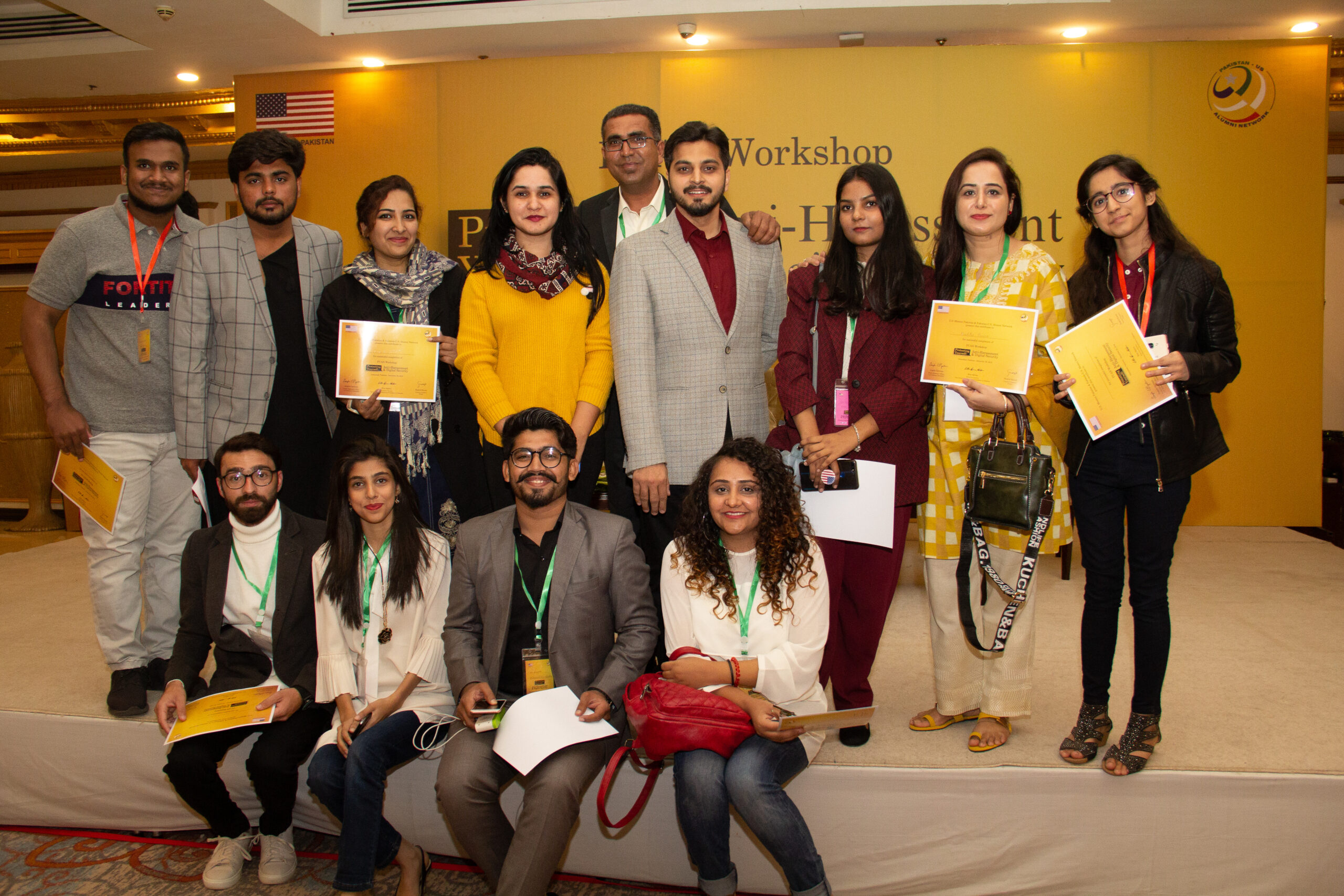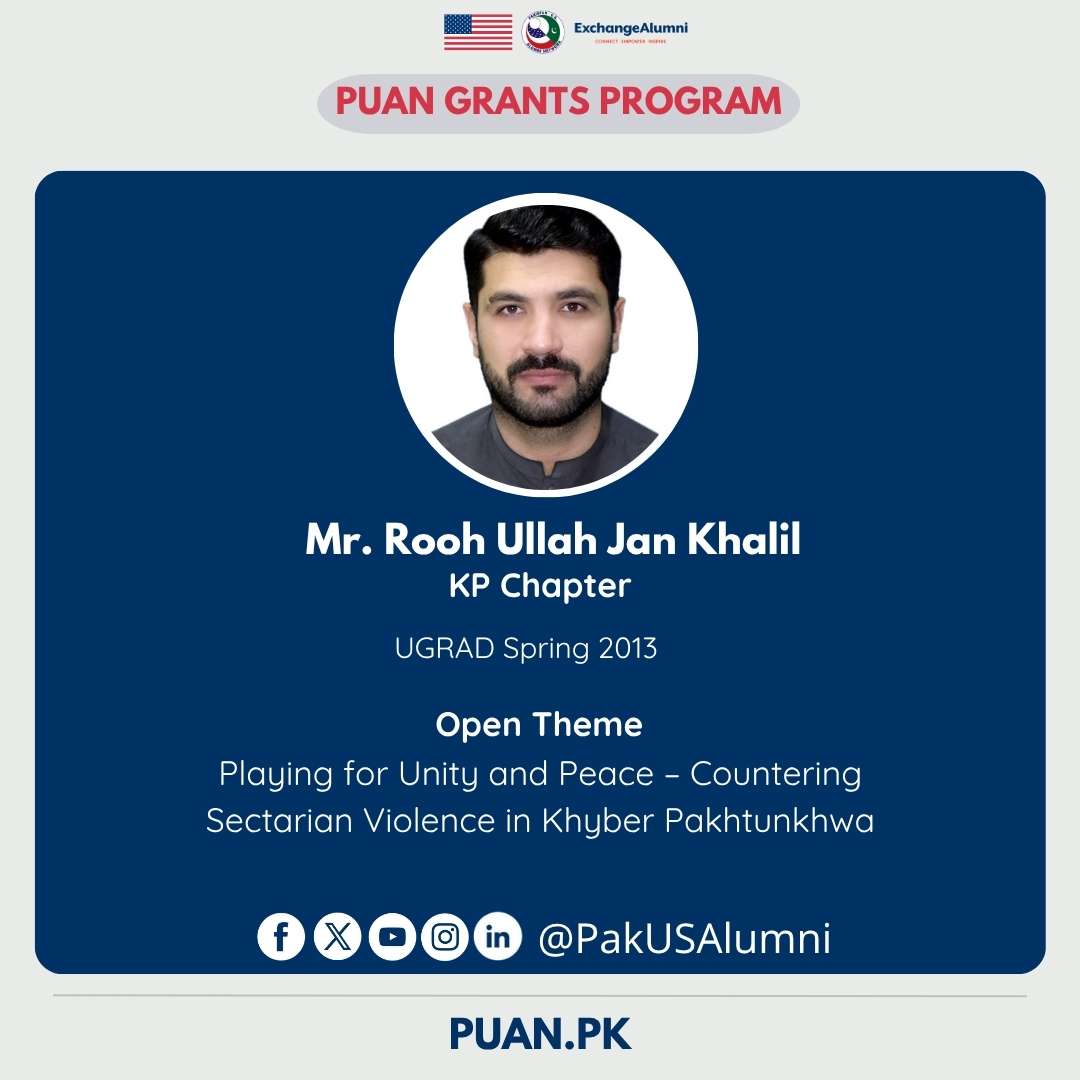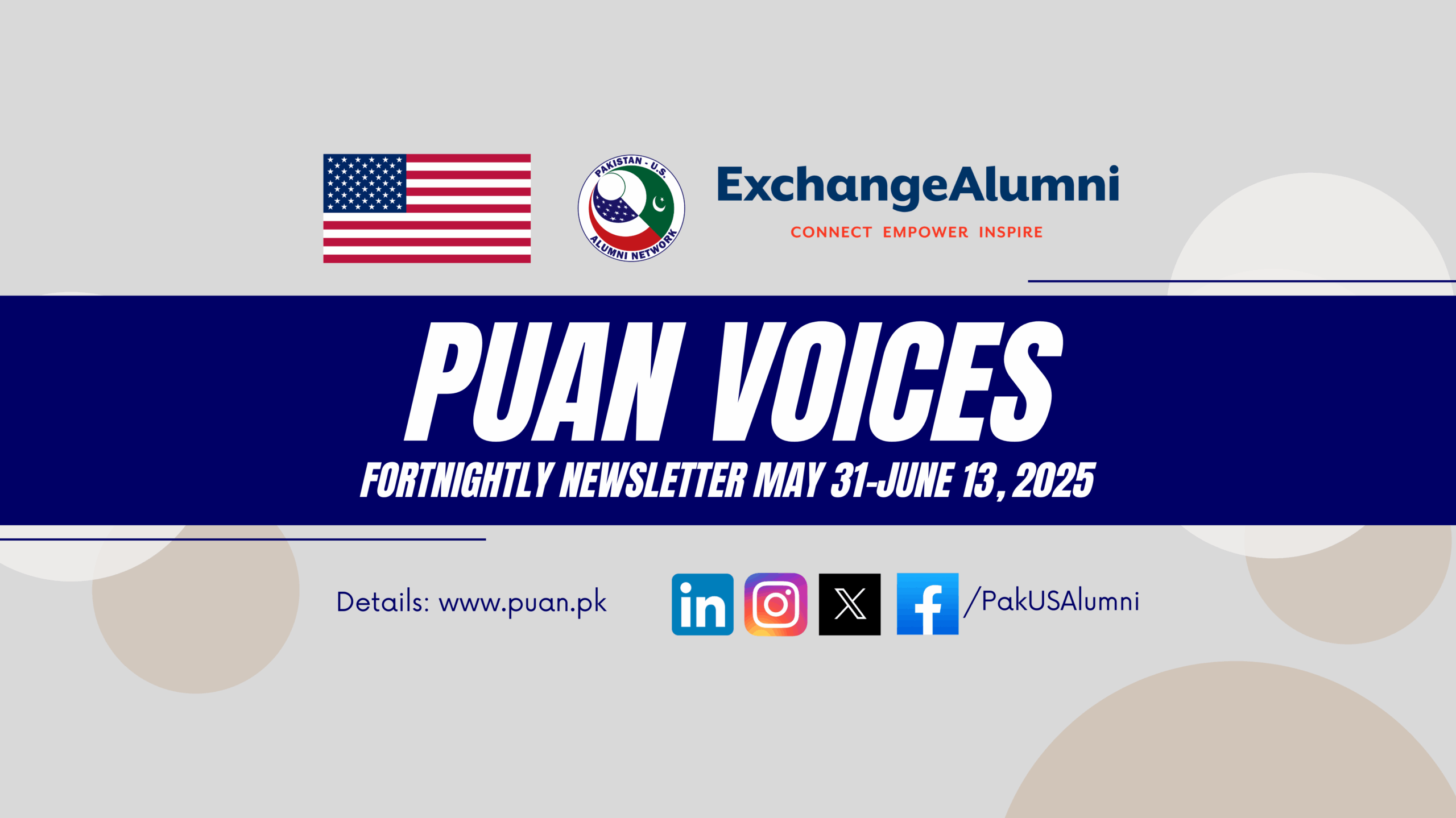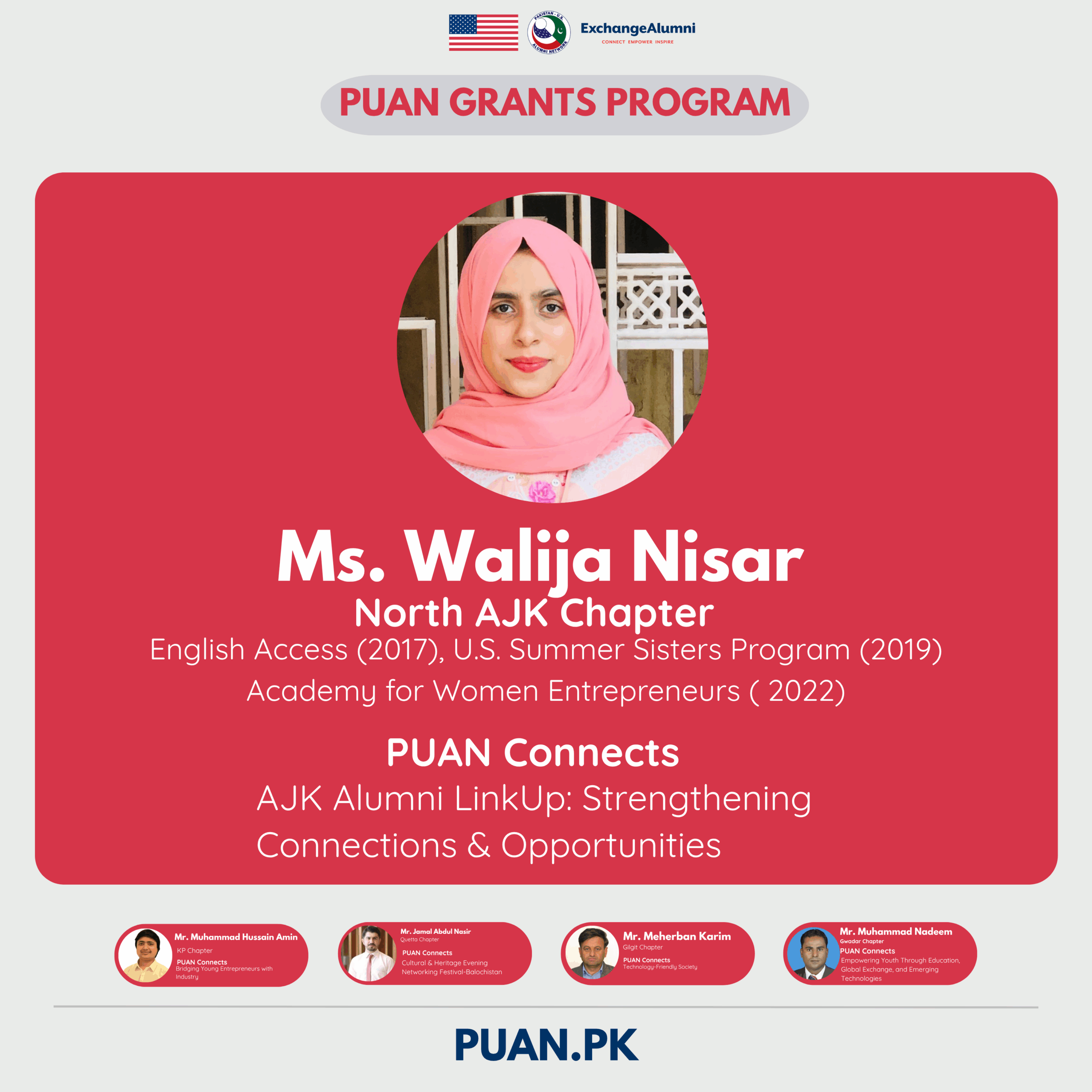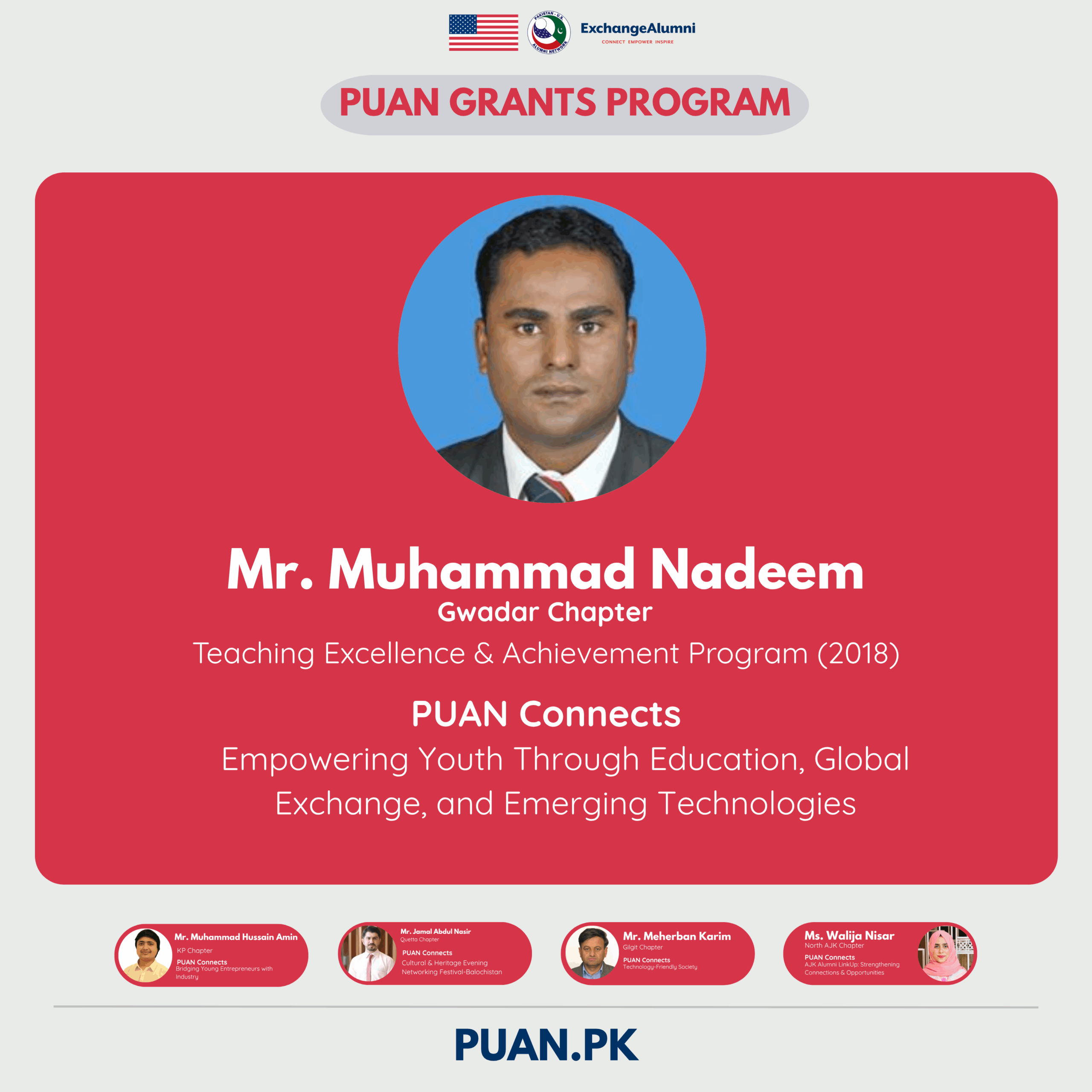The Pakistan-U.S. Alumni Network (PUAN) is the world’s largest U.S.-government alumni network, with over 29,000 alumni spread across the world. To support the creation of an inclusive, safe and healthy environment, PUAN organized a workshop on anti- harassment and digital security on December 28, 2019. Almost 200 alumni from all 13 chapters joined in Islamabad to understand Pakistan’s laws regarding anti-harassment, digital security and cyber bullying.
Multiple interactive panel discussions were held that helped explore the topic intuitively. Round one focused on defining harassment, bullying and discrimination and how one can avoid it. Guidance was given by explaining different Pakistani laws, including the Pakistan Penal Code 1860, Protection against Harassment of Women at the Workplace Act 2010, Harassment Tribunal (Procedure of complaint and timeline of case process) and more. Experts included Rukhshanda Naz, Ombudsperson KP, The Government of Khyber Pakhtunkhwa, and Ayesha Siddique Khan, Barrister at Law, Islamabad High Court.
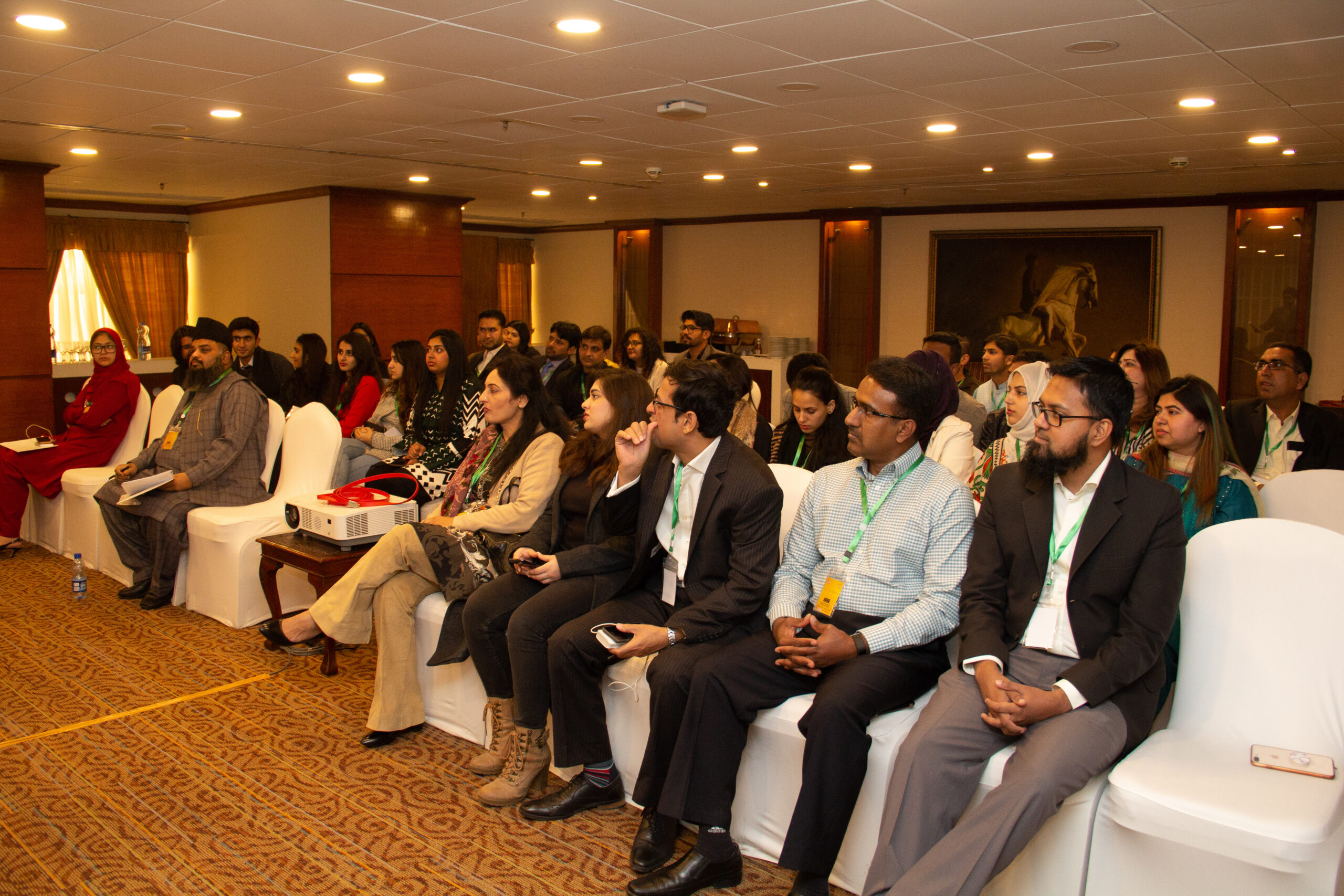
This was followed by another panel discussion, which focused on defining digital security. In this segment, the Pakistani laws of Prevention of Electronic Crime Act 2016, the Electronic Transactions Ordinance 2002, and the Federal Investigation Agency Act 1974 were discussed. The panel included Kashaf Rehman, Communication and Outreach Officer for Bolo Bhi, Faizullah Korejo, Additional Director FIA, Cyber Crimes Sindh Zone, Saleha Saleem, Sr. Software Engineer at Nayatel, and Nida Fatima Zaidi, Program Producer at PTV.
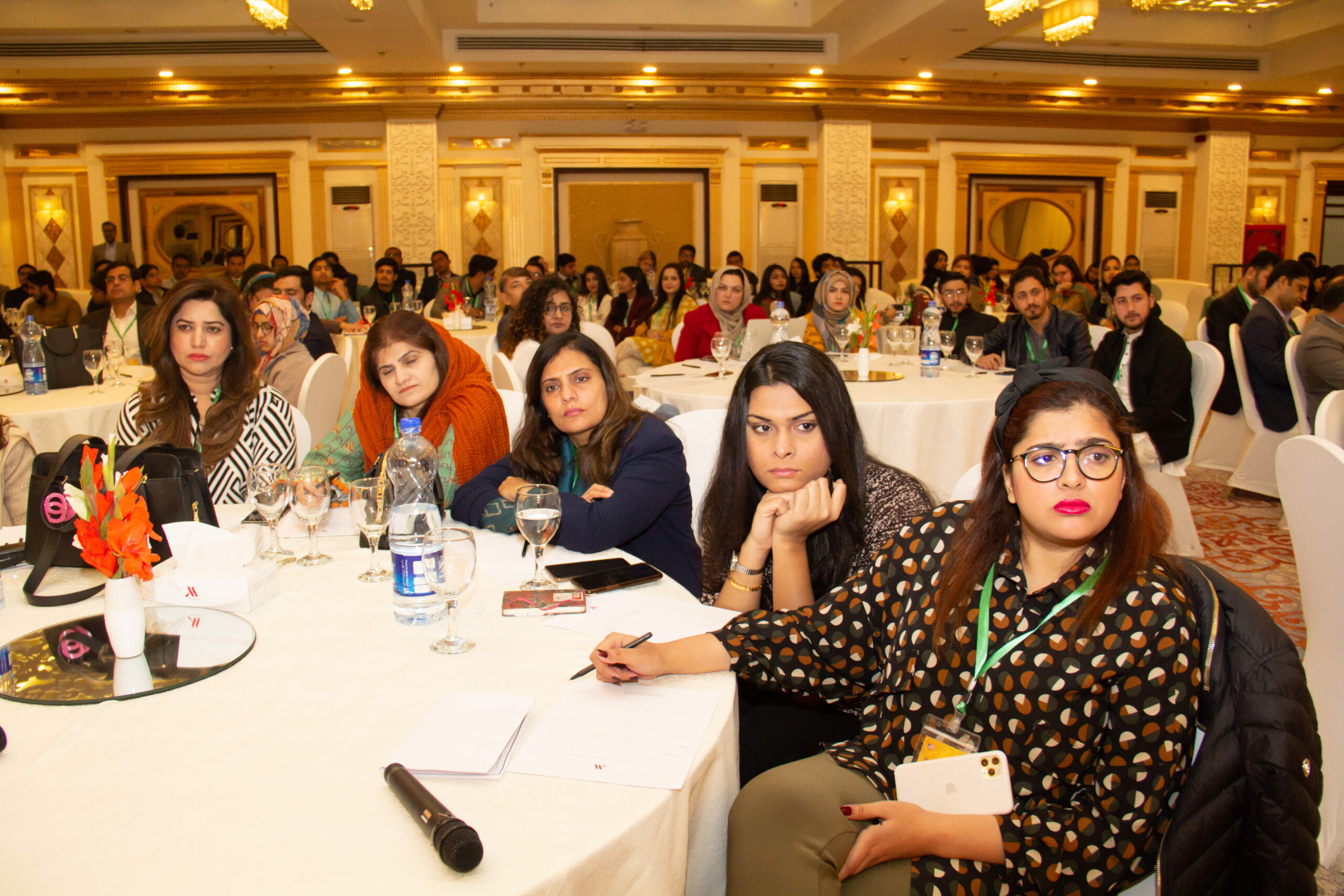
To provide the U.S. Government’s perspective on cyber security and anti-harassment, Marcia Outlaw, Assistant Cultural Affairs Attache at the U.S. Embassy in Pakistan, presented on ‘U.S. Anti-harassment and Bullying Policies’, followed by a question answer session during which participants shared their ideas and discussed how best practices from the U.S. can be implemented within Pakistan.
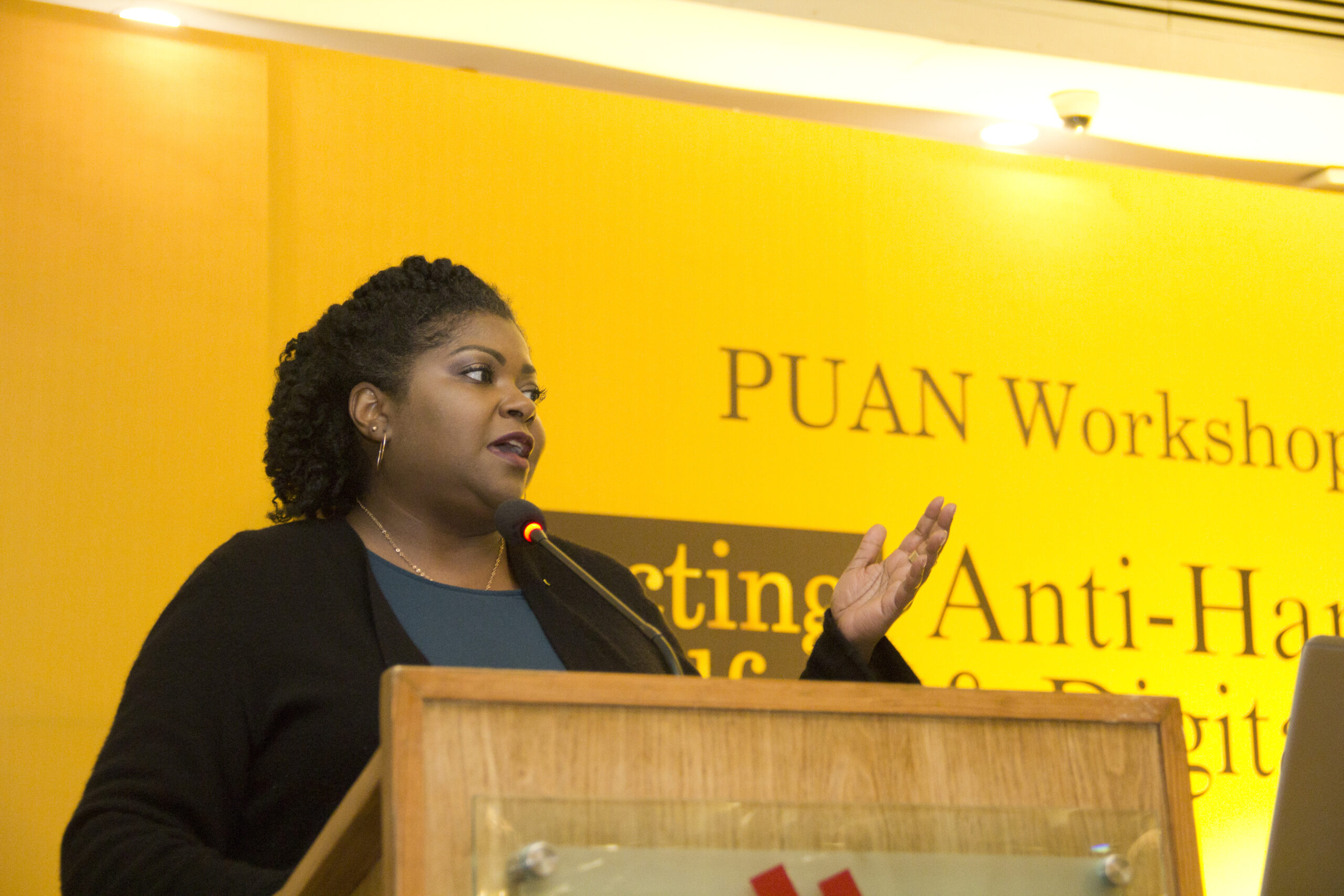
The panel discussions were followed up by interactive workshops during which the participants split into four groups. Each group was assigned scenarios based on the laws and topics explained during the panel discussions. Through brainstorming sessions, role plays and presentations, the participants demonstrated the practical implementation of the theoretical concepts they learned during the conference.
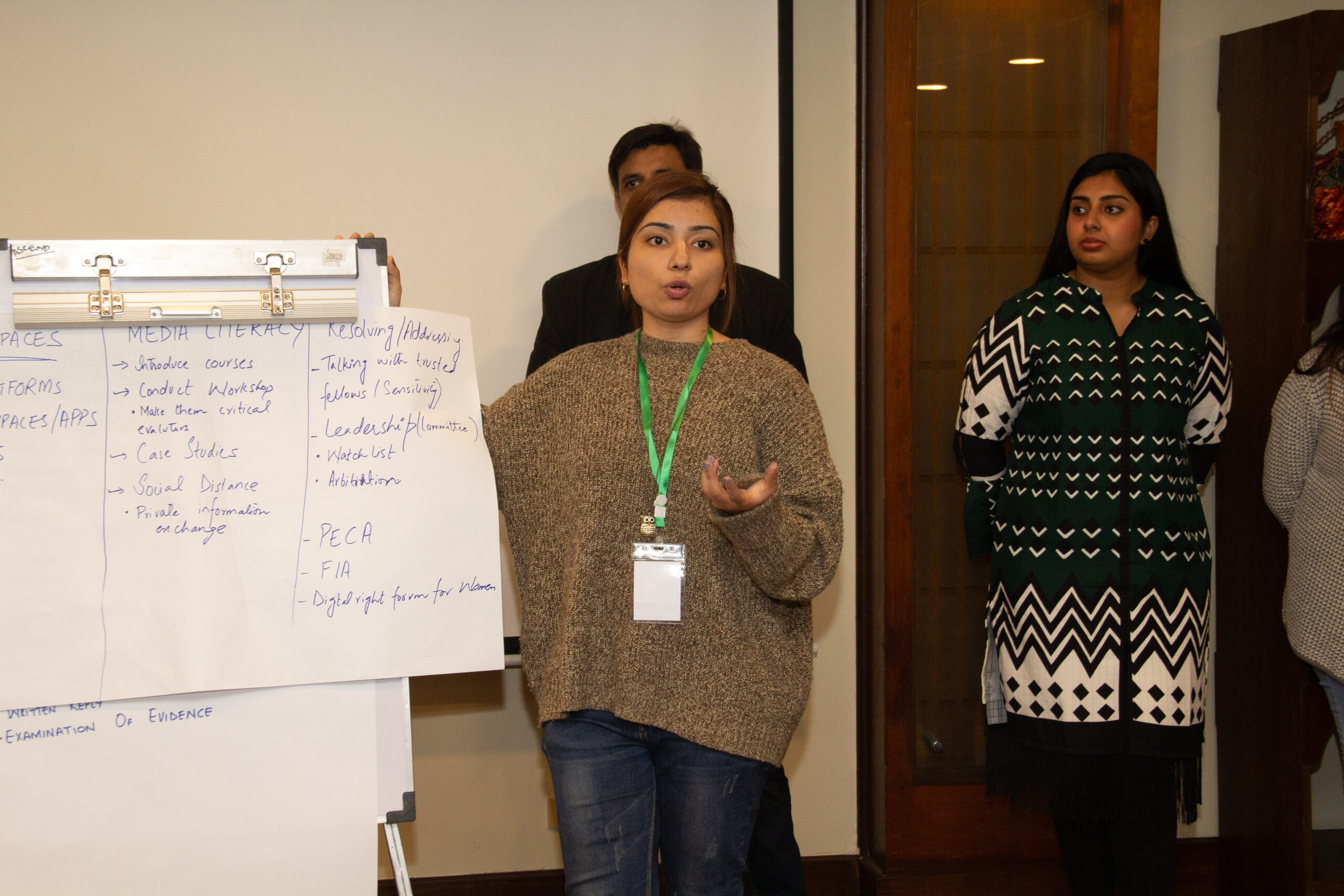
Anthony Tony Jones, Acting Cultural Affairs Officer, U.S. Embassy, Islamabad said:
“We, at the U.S. Mission in Pakistan, take the security and safety of our alumni very seriously. We find strength in our code of conduct. The PUAN family needs to work together to ensure that it’s a safe and welcoming space for everyone.”
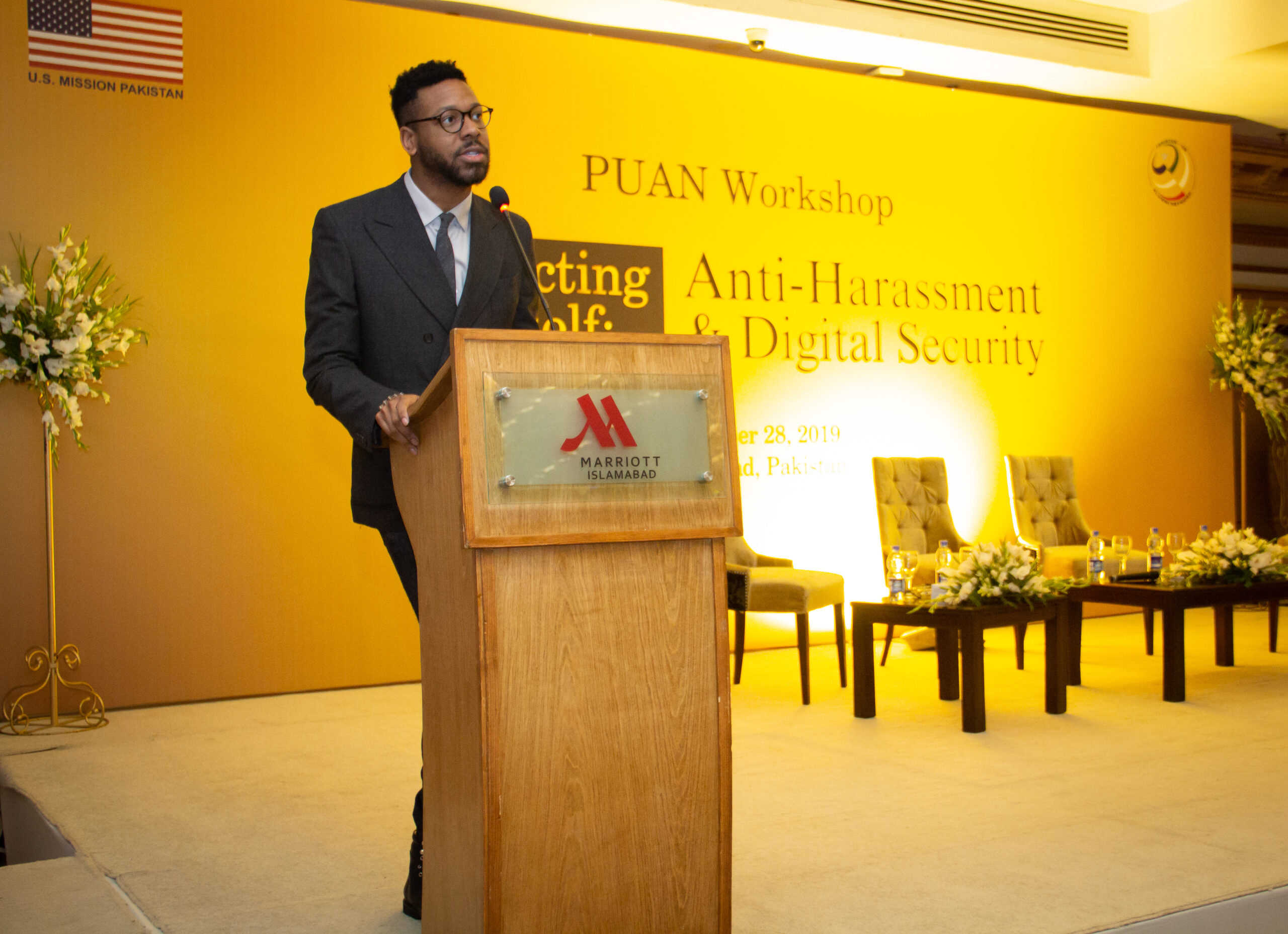
Upon successfully completing this training, each participant was awarded a certificate and encouraged to disseminate their learnings within their chapters and communities. In addition, PUAN also announced the formation of a PUAN Committee where selected participants from the workshop will be solicited as alumni volunteers, to develop and enforce anti-harassment policies for the network.
